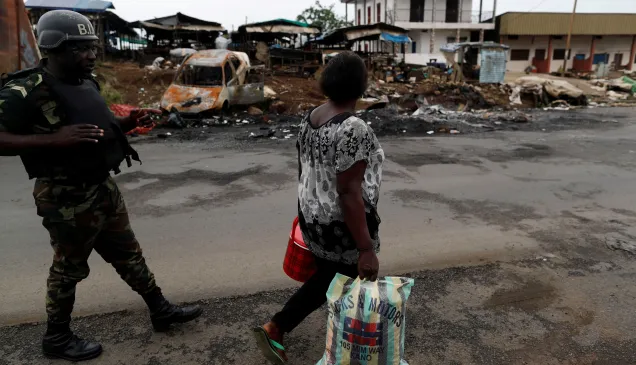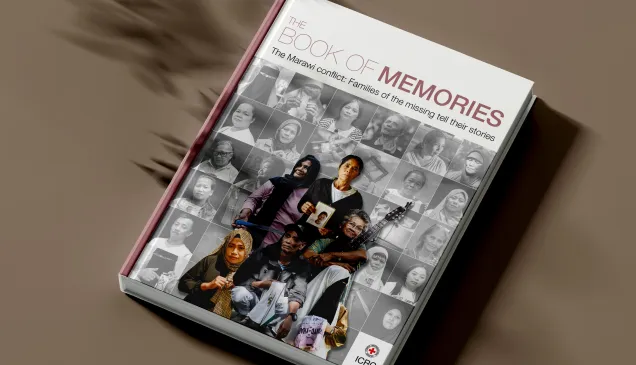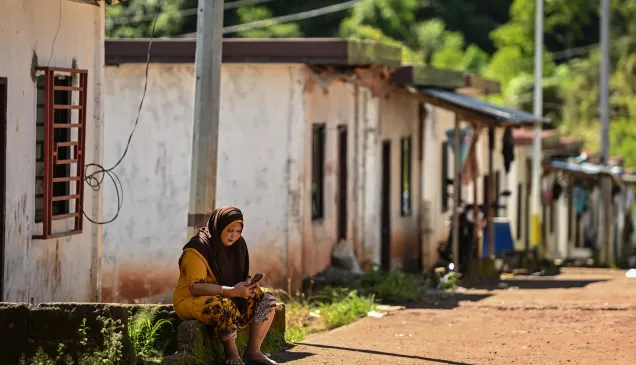A new beginning
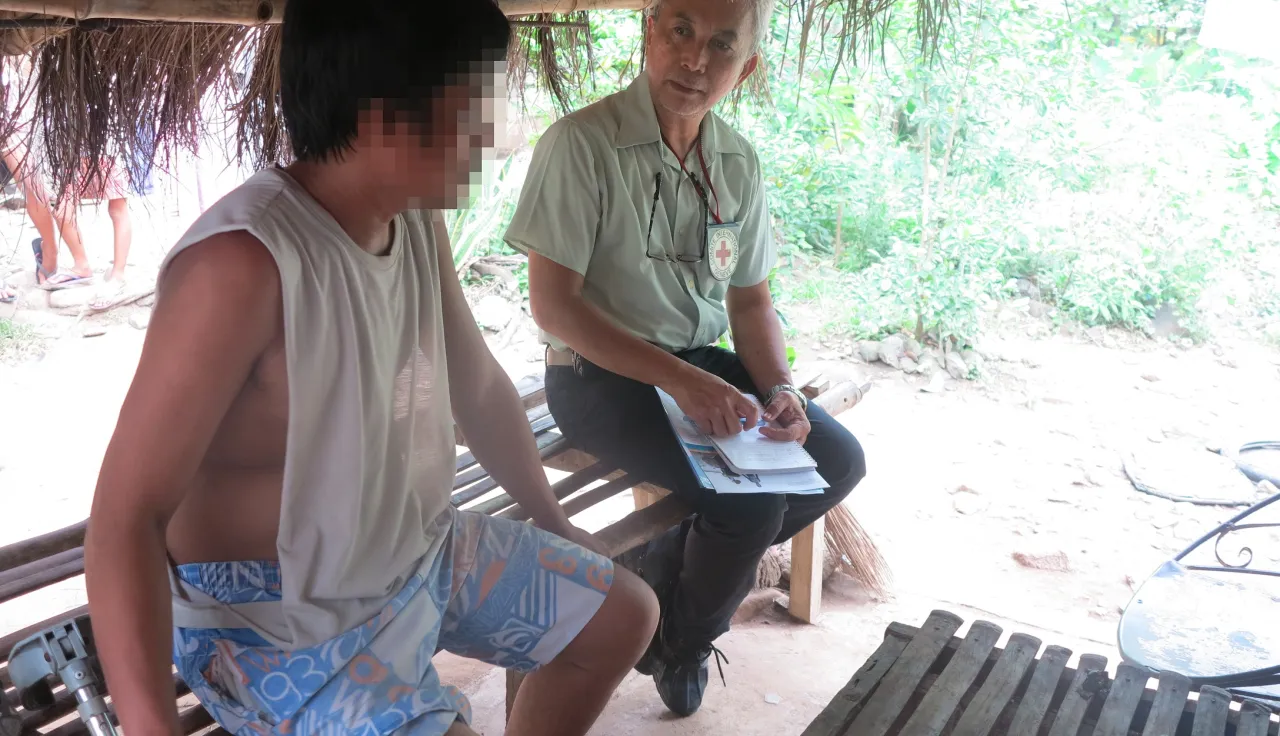
*Samuel, 36, spent most of his time working in the rice field or the vegetable farm as a farmer. During months when he has to wait for rice to harvest, he would work as a construction worker or a barber to earn extra income for his family.
But during clashes between the military and members of an armed group in Tarlac in 2013, a bullet pierced Samuel's lower right leg, causing a severe fracture. He was brought to the V. Luna General Hospital and to save his life, his leg—starting from his right thigh--was amputated.
"Everything changed after that," Samuel said. He had to learn to walk on one leg and use wooden crutches. At first he was frustrated that he couldn't do any sports. Even riding a jeepney or tricycle on his daily commute was difficult. "Everything was slow and needed extra care."
While recovering, he was transferred to the Northern Luzon Command and eventually to the Tarlac Provincial Jail where he was detained for about two years in relation to the armed conflict.
In jail, it was difficult for him to move around even after jail authorities provided wooden crutches. "I needed somebody to assist me whenever I went to the toilet. There were instances when I fell into the toilet bowl because I couldn't keep my balance."
With its mandate to help vulnerable detainees, particularly those detained in relation to armed conflict, the International Committee of the Red Cross helped Samuel by providing him devices to enhance his mobility. "To this day, I use the commode chair and aluminum arm crutches that were given to me in 2013. The material is lighter than wood so it became easier for me to move inside the jail," he said.
Samuel was eventually found not guilty and he was released on June 13, 2015.
When he returned to his family, he was confined to activities at home. "I used to see my friends or go to the farm but I could not do so much anymore." Samuel didn't want to be a burden to his wife especially after she gave birth to their second child. He did his best to help with household chores.
But Samuel wanted to be able to farm again, so he approached ICRC the following year to help him improve his mobility.
In January 2017, Samuel traveled to Davao with his wife *Carla to be fitted with prosthesis and to undergo physiotherapy sessions at the Davao Jubilee Foundation (DJF), an ICRC-supported physical rehabilitation facility.
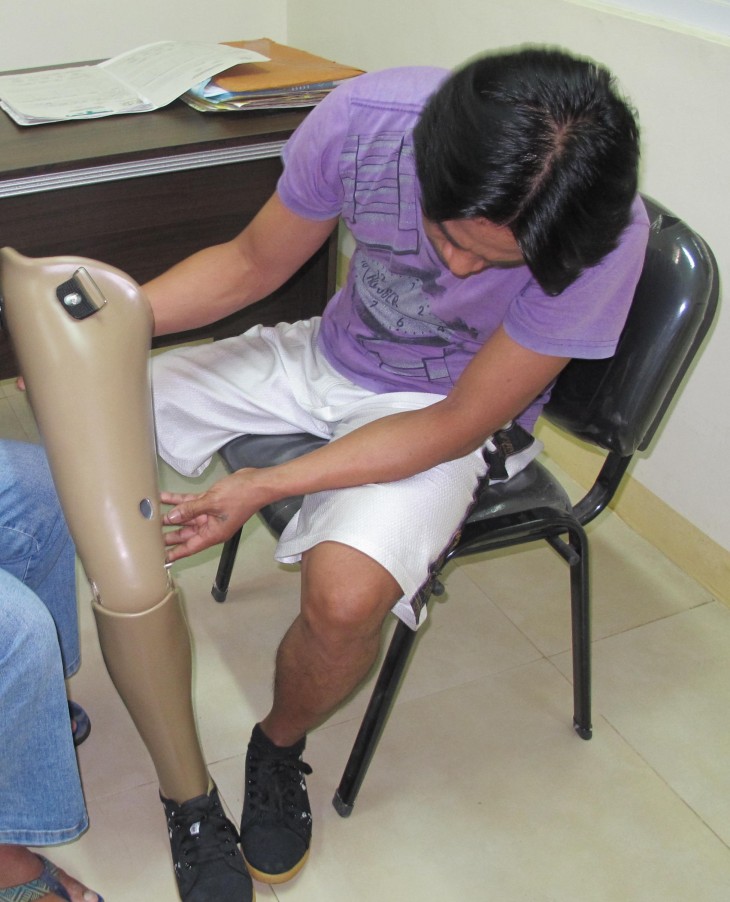
Samuel checks his new prosthesis before undergoing gait training and physiotherapy sessions at the Davao Jubilee Foundation. Photo: ICRC/L. dela Cruz
"Samuel went through the rehabilitation for only one week while it usually takes 2-3 weeks for others," said ICRC field officer Alvin Loyola, noting that Samuel did exceptionally well during his gait training and physiotherapy sessions. The couple left DJF after a two-week stay and returned to Tarlac the next day.
Asked what motivated him during his therapy, Samuel said he always thought of his 4-month-old son who was left in Tarlac under the care of his sister.
"My wife and I went through a lot together. I'm just really thankful that she has been patient and equally grateful that the ICRC supported our journey," he said.
Samuel also shared that before he received the prosthesis, it was his wife who would go out to fetch water from a source nearby. It was especially difficult because she was still fragile from giving birth.
"I'm just really happy now that I can easily walk out of the house to fetch water for my family."
Two weeks after he came home, Samuel told the ICRC that not only could he fetch water for his family, he could also go around their barangay (village) again with only his prosthesis aiding him. When the farming season comes, Samuel said he would try to work in the field again.
The ICRC works to assist and protect victims of armed conflict. It ensures care for people wounded by conflict by supporting health structures through training and donations of medical items, and by providing individual support for treatment when needed.
*Names changed to protect their identities

